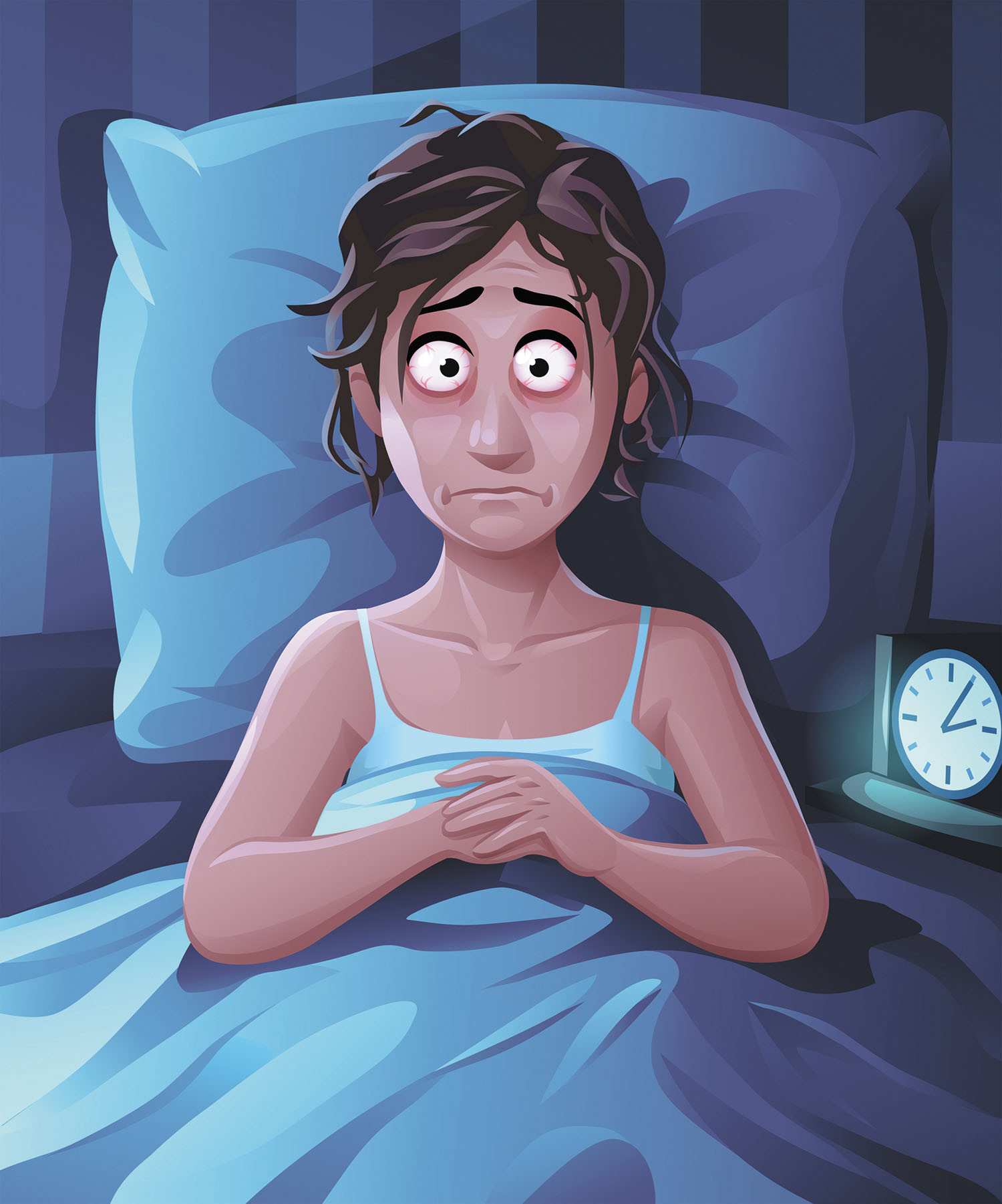Insomnia, characterized by difficulty falling asleep, staying asleep, or waking up too early, is a widespread condition that affects millions of people around the world. While the physiological aspects of insomnia are often highlighted, its psychological dimensions warrant deeper exploration. Understanding the interplay between mind and sleep can illuminate why some individuals experience insomnia while others do not, as well as how cognitive and emotional factors contribute to this complex condition.
The Prevalence of Insomnia
Insomnia is one of the most common sleep disorders, affecting an estimated 10-30% of adults at some point in their lives. The condition can manifest as acute insomnia, which is short-term and often linked to stress or life changes, or chronic insomnia, lasting for a month or longer and typically associated with underlying psychological or physical issues. The consequences of insomnia can be profound, ranging from diminished cognitive performance and emotional instability to long-term health risks, including obesity, cardiovascular disease, and mental health disorders.
Psychological Factors Contributing to Insomnia
- Anxiety and Stress: One of the most significant psychological contributors to insomnia is anxiety. Individuals with generalized anxiety disorder or those facing high-stress situations often find it challenging to relax enough to fall asleep. The mind races with worries about the future, work pressures, or personal relationships, creating a cycle where anxiety about sleep itself can exacerbate the problem. This cycle of anxiety and insomnia can be particularly insidious, as the more one worries about not sleeping, the harder it becomes to achieve restful slumber.
- Depression: Depression and insomnia frequently co-occur. Individuals suffering from depression may experience altered sleep patterns, including insomnia or hypersomnia. Depressive symptoms can create a pervasive sense of hopelessness and lethargy, making it difficult to initiate or maintain sleep. Furthermore, the negative thought patterns characteristic of depression can lead to rumination overthinking past events or future uncertainties compounding insomnia and fostering a restless mind.
- Cognitive Behavioral Patterns: Cognitive behavioral factors play a crucial role in insomnia. Maladaptive thoughts and beliefs about sleep can significantly hinder one’s ability to rest. For example, individuals may develop beliefs such as “I must get eight hours of sleep to function,” which can create performance anxiety around sleep. This fixation can lead to “sleep avoidance” behaviors, where individuals begin to associate their bed with stress rather than relaxation.
The Role of Lifestyle and Environment
While psychological factors are central to understanding insomnia, external influences should not be overlooked. Poor sleep hygiene, such as irregular sleep schedules, excessive screen time before bed, or an uncomfortable sleep environment, can exacerbate existing psychological issues. Moreover, lifestyle factors such as caffeine intake, alcohol consumption, and lack of physical activity can impact sleep quality. Individuals with restless minds may find themselves caught in a web where both psychological and lifestyle factors reinforce each other, leading to chronic sleep issues.
The Biological Underpinnings
From a biological perspective, insomnia is often linked to dysregulation of neurotransmitters and hormones that govern sleep. Cortisol, the stress hormone, can become elevated in individuals experiencing chronic stress or anxiety, further complicating their ability to sleep. Additionally, neurotransmitters like serotonin and gamma-aminobutyric acid (GABA), which are crucial for sleep regulation, may also be affected by psychological states. This interplay between psychological and biological factors suggests that addressing insomnia requires a multifaceted approach.
Treatment Approaches
- Cognitive Behavioral Therapy for Insomnia (CBT-I): Cognitive Behavioral Therapy for Insomnia (CBT-I) is considered the gold standard in treating insomnia. CBT-I helps individuals identify and modify the thoughts and behaviors that contribute to their sleep difficulties. Techniques such as sleep restriction, stimulus control, and cognitive restructuring are employed to promote healthier sleep patterns. By addressing the cognitive distortions and maladaptive beliefs surrounding sleep, CBT-I empowers individuals to regain control over their rest.
- Mindfulness and Relaxation Techniques: Mindfulness meditation and relaxation exercises can be effective in managing the anxiety and stress that contribute to insomnia. By training the mind to focus on the present moment and reduce rumination, individuals can cultivate a sense of calm that facilitates sleep. Techniques such as deep breathing, progressive muscle relaxation, and guided imagery can help soothe the restless mind, making it easier to transition into sleep.
- Pharmacological Interventions: While medication is not the first line of treatment, pharmacological interventions may be necessary in some cases, particularly when insomnia is severe or has a significant impact on daily functioning. However, it is crucial to use these medications under the guidance of a healthcare professional, as they can lead to dependence or mask underlying psychological issues if used long-term.
The Importance of Lifestyle Changes
Incorporating healthy lifestyle changes can also significantly improve sleep quality. Maintaining a consistent sleep schedule, creating a calming bedtime routine, and optimizing the sleep environment can help mitigate insomnia symptoms. Reducing caffeine and alcohol intake, increasing physical activity, and managing stress through mindfulness or other relaxation techniques can all contribute to a more restful night’s sleep.
Conclusion
Insomnia is a multifaceted condition that reflects the complex interplay between psychological, biological, and environmental factors. A restless mind, plagued by anxiety, depression, and maladaptive thought patterns, can significantly hinder the ability to achieve restful sleep. Addressing insomnia effectively requires a comprehensive approach that includes psychological interventions, lifestyle modifications, and, when necessary, medical treatment. By understanding the psychological underpinnings of insomnia, individuals can develop strategies to reclaim their sleep and improve their overall quality of life. As awareness of the psychological aspects of insomnia grows, so too does the potential for more effective treatments that target the root causes of restless minds.
